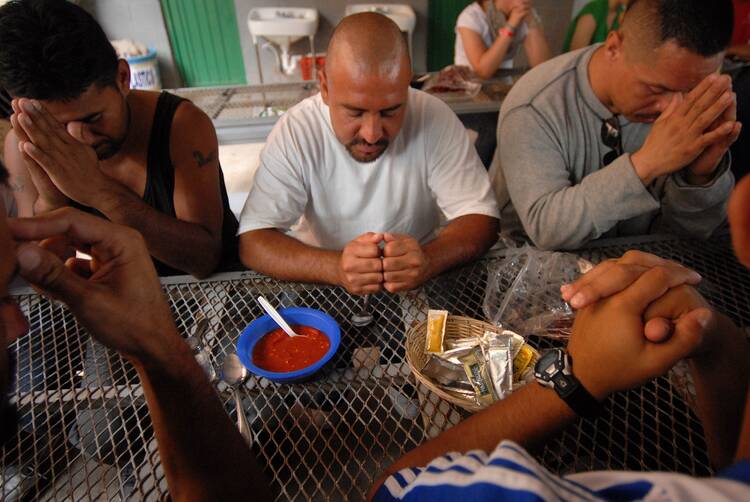The U.S. bishops’ Committee on Migration will travel to Nogales, Ariz., from March 30 to April 1 to tour the U.S.-Mexico border and celebrate Mass to remember 6,000 migrants who have died in the U.S. desert since 1998. • Vatican medical experts reported on March 6 that there is no natural explanation for the survival of a child, delivered stillborn, whose heart did not start beating until 61 minutes after his birth, a miracle credited to the intercession of Archbishop Fulton Sheen. • On Ash Wednesday, March 5, more than two dozen presidents of Catholic colleges and universities pledged to fast for 24 hours in support of the ongoing “Fast for Families,” a campaign for immigration reform. • Uganda’s Catholic bishops are reviewing the country’s new Anti-Homosexuality Law in order to come up with “an educated” response, said a senior church official on March 5. • Turkey’s Christian community was outraged after local media suggested that the Basilica of Hagia Sophia, which was once a church, then a mosque and now a museum, could become a center of Islamic worship once again. • March 15 marked the third anniversary of the crisis in Syria, which shows no sign of abating, even after more than 120,000 people have died and millions have been displaced.
News Briefs
Show Comments (
)
Comments are automatically closed two weeks after an article's initial publication. See our comments policy for more.
The latest from america
Archbishop Wenski of Miami and some 25 Knights of Columbus saddled up their motorcycles to pray a rosary at the entrance of Alligator Alcatraz, the migrant detention center recently opened in the Florida Everglades.
The U.S. church will have to contend with “deportation on steroids“ as the Trump administration adds vast new capacity to Immigration and Customs Enforcement.
Pope Leo XIV has extended his vacation at Castel Gandolfo by two days. How does he relax? And what have other popes done with their downtime?
Pope Leo XIV marks 56th anniversary of moon landing with observatory visit and a call to Buzz Aldrin
Pope Leo XIV marked the 56th anniversary of man’s arrival on the moon Sunday with a visit to the Vatican astronomical observatory in Castel Gandolfo and a call to astronaut Buzz Aldrin.








